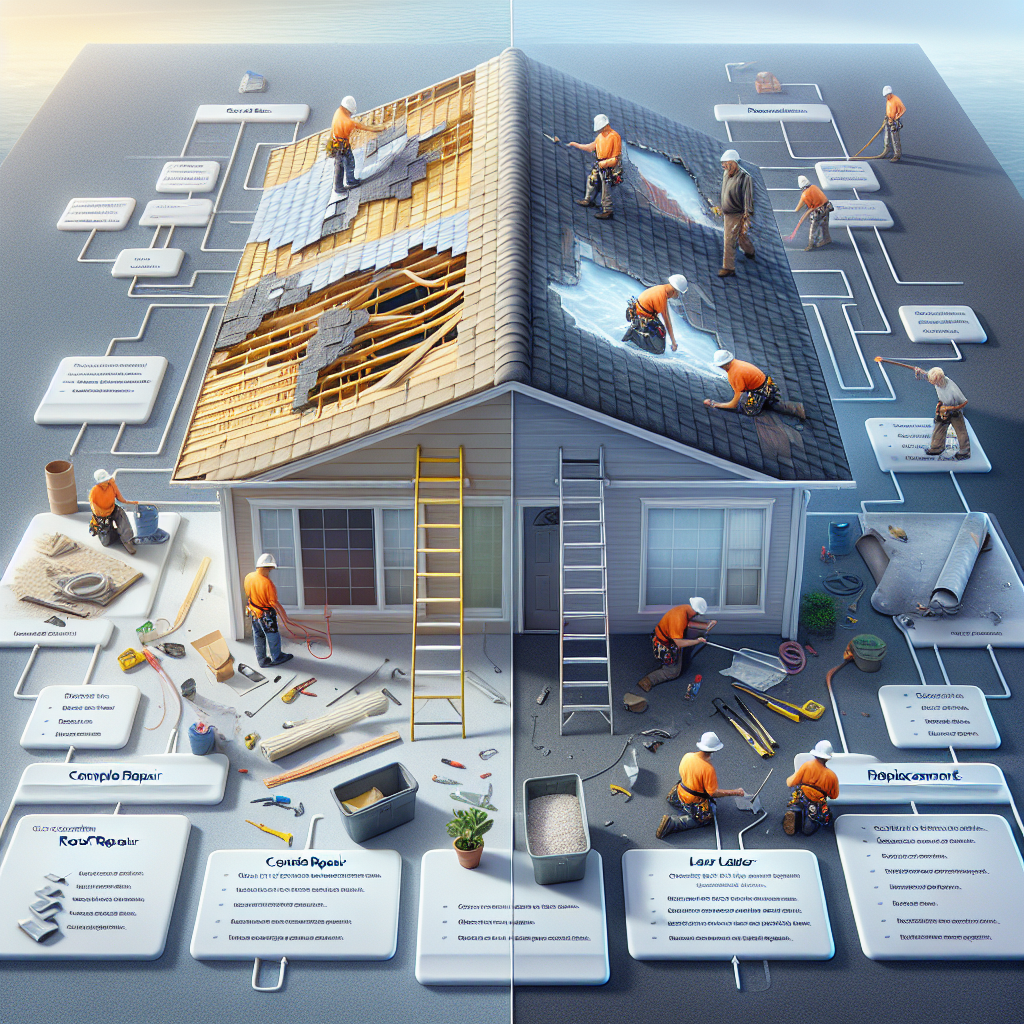The Impact of New Jersey Weather on Your Roof
Are you tired of dealing with constant roof repairs and leaks? Do you wonder why your roof seems to deteriorate faster than others in different parts of the country? If so, you’re not alone. Many homeowners in New Jersey face similar challenges due to the unique weather conditions that this state experiences throughout the year.
Coastal Storms: A Roof’s Worst Nightmare
New Jersey’s coastal location makes it susceptible to powerful storms that can wreak havoc on roofs. The combination of strong winds, heavy rain, and flying debris during these storms can cause significant damage. Shingles may be torn off or damaged, leaving your roof vulnerable to leaks and water infiltration.
In addition, coastal storms often bring saltwater spray from the ocean, which can corrode metal components of your roof such as flashing and gutters. This corrosion weakens their structural integrity over time and increases the risk of leaks.
Heavy Snowfall: Putting a Burden on Your Roof
Winter in New Jersey means heavy snowfall, especially in northern regions like Sussex County. While snow-covered landscapes create picturesque scenes, they also pose a threat to your roof’s stability.
The weight of accumulated snow puts immense pressure on your roof structure. If not properly designed or maintained, this added burden can lead to sagging or even collapse. Additionally, when temperatures fluctuate between freezing and thawing cycles known as freeze-thaw cycles – ice dams may form along the edges of your roof. These dams prevent proper drainage and force melted snow under shingles causing leaks inside your home.
Hailstorms: Unpredictable Damage
New Jersey occasionally experiences hailstorms during severe thunderstorms or tornadoes. Hailstones vary in size, from small pellets to large chunks of ice. When these icy projectiles collide with your roof, they can cause dents, cracks, or even punctures in shingles and other roofing materials.
Even if the damage is not immediately visible, hail impacts weaken the integrity of your roof over time. This can lead to leaks and further deterioration during future weather events.
Extreme Heat: Slowly Wearing Down Your Roof
New Jersey summers are known for their high temperatures and humidity levels. While you may enjoy soaking up the sun on a beach day, your roof does not share the same sentiment.
Prolonged exposure to extreme heat causes asphalt shingles to expand and contract repeatedly. Over time, this thermal cycling weakens the shingle’s structure and leads to cracking or curling. Additionally, UV rays from the sun break down organic compounds in roofing materials such as wood or rubber membranes faster than in cooler climates.
High Winds: A Constant Threat
The Garden State experiences its fair share of windy days throughout the year. Strong gusts can lift shingles or blow debris onto your roof surface causing scratches or punctures.
If your roof has loose components due to poor installation or aging materials, high winds can exacerbate existing issues by further loosening them. Regular inspections by expert roofers are crucial for identifying potential problems before they escalate into costly repairs.
Rainfall: The Silent Culprit
Rainfall may seem harmless compared to storms or snowstorms but don’t underestimate its impact on your roof’s longevity. Even without severe weather conditions like hurricanes or tropical storms that New Jersey occasionally experiences,
rainwater alone poses a significant threat if it finds its way through damaged areas of your roof system. Leaks caused by cracked or missing shingles, deteriorated flashing, or clogged gutters can lead to water infiltration and subsequent structural damage.
Temperature Fluctuations: Expanding and Contracting
New Jersey’s climate is characterized by significant temperature fluctuations throughout the year. These rapid changes from hot to cold and vice versa put stress on your roof materials.
The constant expansion and contraction of roofing components due to temperature variations weaken their integrity over time. This can result in cracks, gaps, or even detachment of shingles, leaving your roof vulnerable to leaks during extreme weather events.
Mold and Algae Growth: Aesthetic and Structural Concerns
The humid summers in New Jersey create an ideal environment for mold and algae growth on roofs. These organisms not only detract from the aesthetic appeal of your home but also pose potential health risks if left unchecked.
Mold can thrive in damp areas caused by poor ventilation or trapped moisture under shingles. Over time, it can eat away at organic roofing materials such as wood decking or insulation boards. Similarly, algae growth on shingles retains moisture that accelerates deterioration processes while creating unsightly stains.
Contact ARC Roofing To Learn More
If you’re concerned about how New Jersey’s weather conditions may be impacting your roof’s lifespan and performance, don’t hesitate to reach out to our team of expert roofers at ARC Roofing. We have extensive experience dealing with the challenges posed by coastal storms, heavy snowfall, hailstorms,
extreme heatwaves high winds rainfall temperature fluctuations mold algae growth – all common occurrences in this region. Our skilled professionals will assess the condition of your roof thoroughly provide tailored recommendations for maintenance repairs if necessary ensure its longevity against future weather events.
Don’t let unpredictable weather compromise the safety comfort of your home! Contact ARC Roofing today for a comprehensive roof inspection and expert advice on how to protect your investment.






